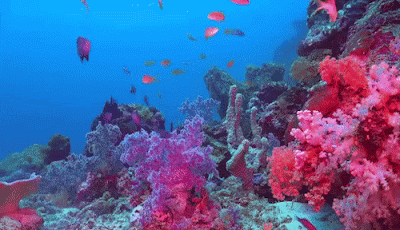WEEK 10: BIOLOGY
The eight point deep ecology platform is an interesting guideline to our planet's health and sustainability. Through these principles, issues such as population control, environmental protection and public policies are addressed.
Preserving the ecology is fundamental to the platform through the belief that ecological processes of the planet should remain intact. Humans, animals and the natural environment have a symbiotic relationship with each and should be allowed to flourish through development of human respect for the biosphere. In other words, humans should not take advantage of the world and its natural resources for the sole purpose of satisfying our needs and wants. Consideration should always be taken to care for our environment and therefore, respecting the delicate relationship we have with the planet and its inhabitants.
The issue of population control is also addressed through this platform. Ecologists are aware of the detrimental effects that population overgrowth will have on the planet through the overconsumption of resources and the increase in waste production in the present and future. How do we address population overgrowth and reduction methods without infringing on issues concerning human rights? Maybe it's time to start thinking...
Another important point mentioned within these principles is the enforcement of a global public policy to protect the environment. The present ideology is that the value inherent in natural resources is directly linked to a commodity value. This is a belief that contributes to greed and waste. The preservation of our ecosphere relies on global laws that implement changes to protect the future of our planet.
Ecosystems are both strong and fragile because they are constantly affected by change on many different levels. When looking at an ecosystem, there are many complex interactions that exist between different species of plants and animals that interact in a way that maintain homeostasis. If this balance is thrown off by any external factors, the overall health of the ecosystem will be jeopardized. This is an example of how the ecosystem can have a fragile nature. Other times, an ecosystem may show resilience when it recovers from a disturbance with relative ease and within a short amount of time. Sometimes an ecosystem demonstrates resilience by maintaining its normal patterns of function during a disturbance of activity. Overall, the interdependence of fragility and resiliency rests on an axis that maintains a relationship of balance for the ecosystem.
The end goals of social ecology are well being, health, equity, social justice, fostering of mutualistic relationships, personal meaning, organizational learning, co-evolutionary change and ecological sustainability. There is an emphasis on self reflective action in all the end goals of social ecology. Humans are encouraged to use their capacity for rationality to establish a healthy rapport with the natural world. In other words, we should be able to recognize and protect the symbiotic relationship we have with nature. Another important component of all these end goals is the ability to find solutions for our current social problems, since this is where social ecology believes that most of the world's ecological problems stem from. The desire for humans to dominate the planet is the very thing that is detrimental to establishing a healthy and symbiotic relationship with the environment. Social ecology's end goals focus on sustainability, mutual respect and conscientious choices.






Comments
Post a Comment